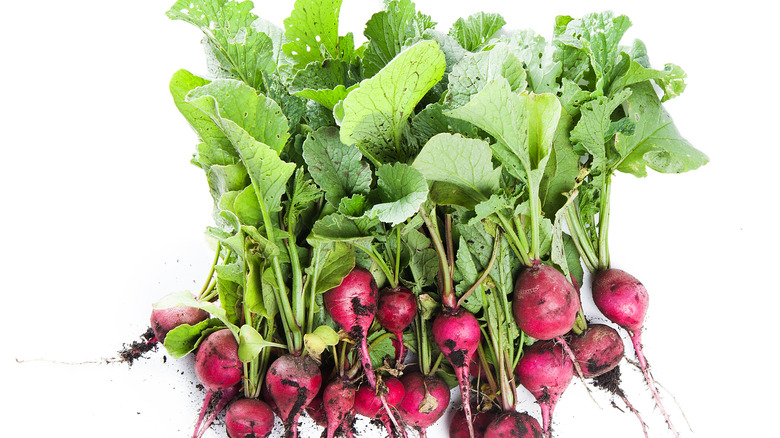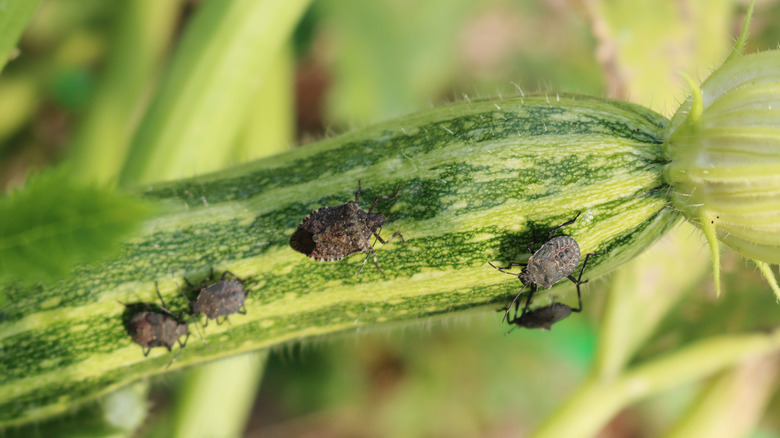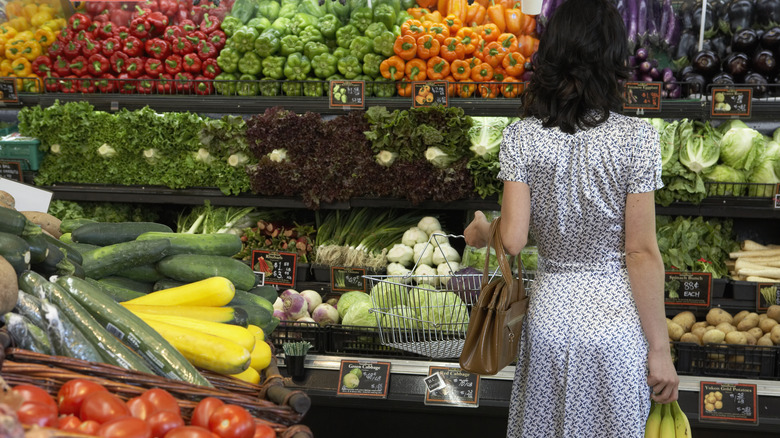Your Grocery Store Produce Is Probably Dirtier Than You Think
Early pandemic days saw many make household disinfecting a top priority, and that included washing all produce. Even in a more relaxed world, washing produce should probably be a non-negotiable item to keep on the chore list. Even the cleanest of grocery stores will not wash your produce for you, though they might mist vegetables to keep them looking perky and fresh. When you're home, the best practice for hygiene in the kitchen is to make sure you wash your produce before you eat or cook it.
You might already know that the USDA recommends using plain cold water for washing, and the reasons why are worth considering. Vigilance around your apples and bananas could mean the difference between a great meal and a bad reaction.
Yes, grapes can have spiders, apples and cabbage carry maggots, and asparagus, cucumbers, and potatoes can harbor beetles, so you'll definitely want to rinse off the tiny crawling insects. But it's not just insect removal that a good wash can handle.
More reasons to wash your produce
You're washing away the swede midges that might make their way to you on broccoli, cauliflower, or Brussels sprouts, but when your produce arrives bug-free, you should think about why. Pesticides are often used before and after harvest, and those pesticides can hang out on your food, clinging to waxy coatings, growing up through roots, and nestling in wedges.
The Environmental Protection Agency says that some pesticide residue is okay for consumption, but pesticide levels on produce are assessed after the produce has been washed in cold water anyway, so unless you'd like the largest dose possible, wash your produce. Brave souls less concerned with studies on the effects of pesticides in the body can disregard this article.
Julie Albrecht, Ph.D., RD, Professor and Extension Food Specialist at the University of Nebraska-Lincoln advises the use of cold water to wash produce, as hot water can start to cook some produce and help bacteria get inside more easily. The Food and Drug Administration also recommends the use of water only because produce is porous, and soap might absorb into it. Soft fruits and veggies should be rinsed, while your thicker and harder-skinned produce can be scrubbed. And even produce with skins you do not eat should be washed first, since bacteria on the outside can get in as you peel it.
Besides bugs and pesticides, you might consider washing even pre-washed produce.
How many hands have touched that produce?
Most regular produce has been handled by at least one other person on its way from the farm to you. Depending on the distance it travels, even more hands could end up on your food, and even at the grocery store, you'll be uncertain how many people palmed your pears and put their noses to your pineapple before you get it home. Hands are dirty — even yours — so you'll want to wash your hands before you wash the potatoes and celery.
As for washing "pre-washed" produce, you might consider the amount of hands that have touched it, and the bacteria that's had time to grow on it as it made its way from the packaging factory to you. If you'd like to be on the safe side, you might give your spinach a swishy swirl in a bowl of cold water and pat dry or salad spin as normal before consumption.


